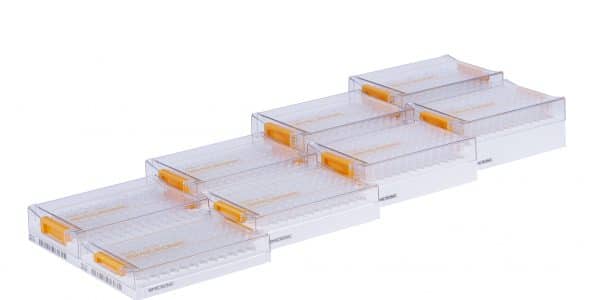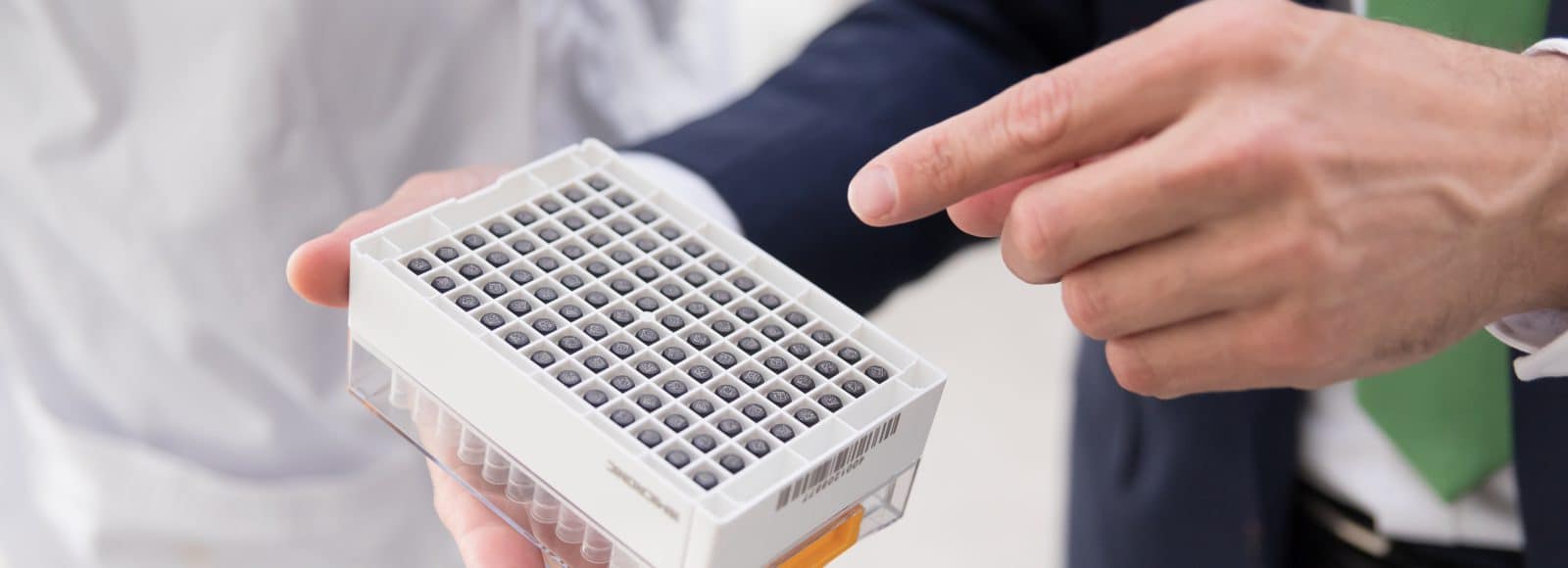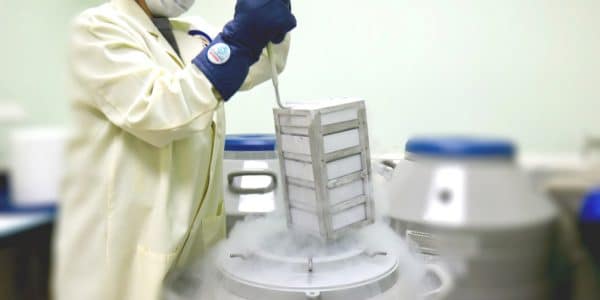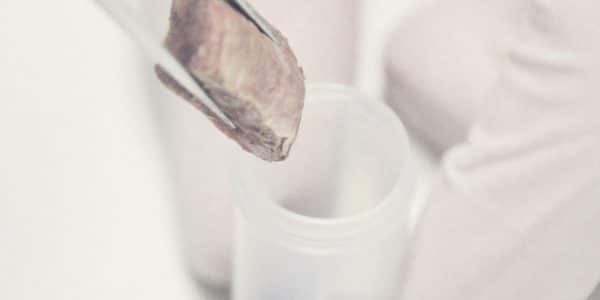

Cryogenic Sample Storage – What does Micronic recommend?
Storing samples at low temperatures is associated with extended viability of the preserved samples. While many samples are stored in mechanical freezers at -80°C, it is important to note that at this temperature metabolic activity has not ceased, it has only slowed down. By reducing sample temperatures to below the glass transition phase of water (-132°C), all metabolic activity comes to a halt. Sample storage below this temperature – in vapor phase LN2 – therefore assures a safe form of preservation.
The temperature range of the material of the Micronic tubes, racks and caps is approved from -80ºC to +100ºC. In practice Micronic products are used in cryogenic temperatures until vapor phase LN2. Vapor phase LN2 temperatures range between -150°C and -196°C, depending on the location and the distance away from the liquid nitrogen vessel.
Micronic does not recommend to store samples in liquid phase nitrogen, as there are several risks associated with storing samples in these kind of storage systems:
- Storage in LN2 includes the risk of the tubes being flooded by LN2 when the storage vessel is filled – LN2 may seep inside the tube when not correctly capped. LN2 trapped in a cavity expands rapidly when the tube is retrieved into room temperature, which may cause a significant explosion risk. No manufacturer can guarentee that LN2 will never penetrate into any tube during storage.
- Research shows that laboratory staff should be aware of potential cross-contamination from e.g. viruses that retain infectivity after suspension in LN2.
Micronic therefore recommends to only snap freeze sample storage tubes in LN2 without submerging the cap.

